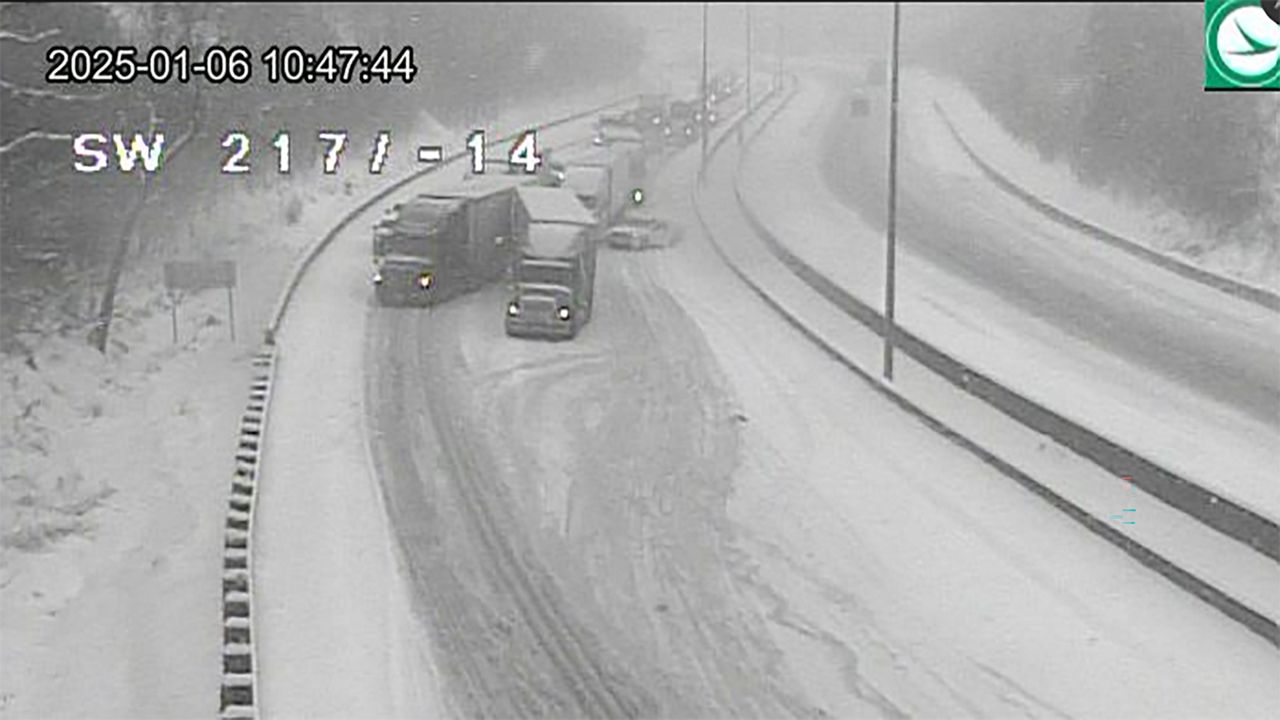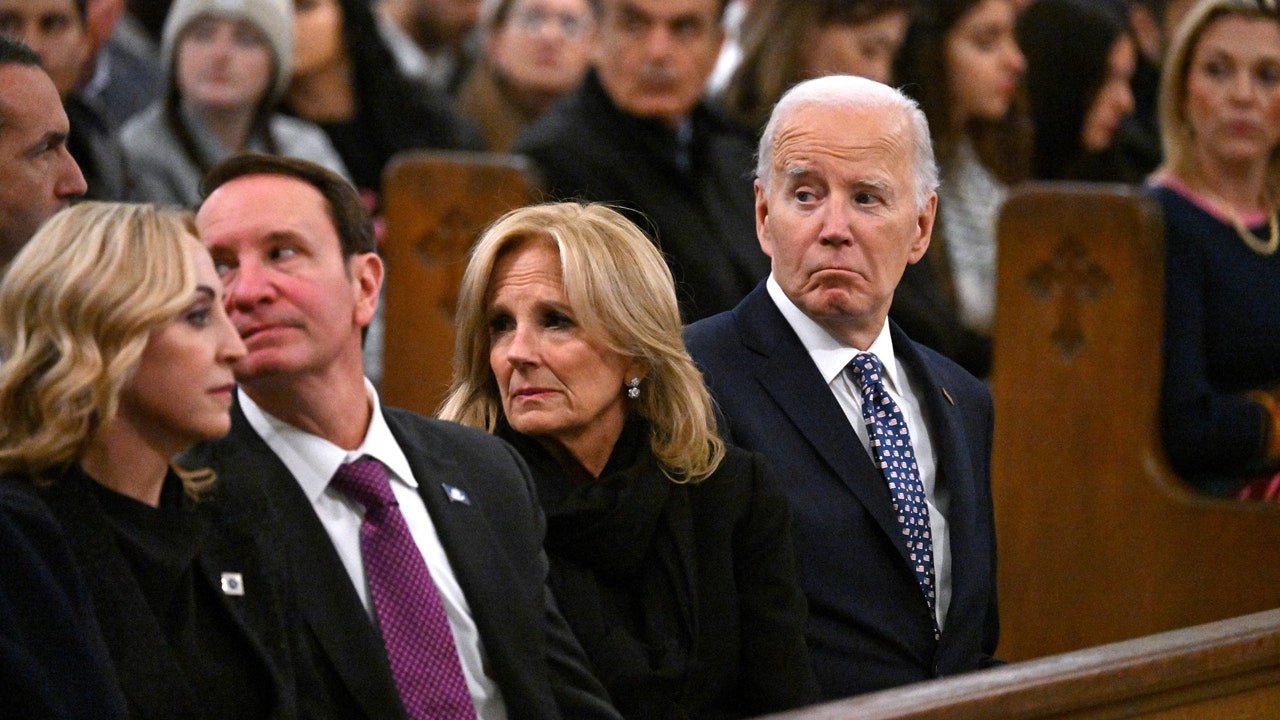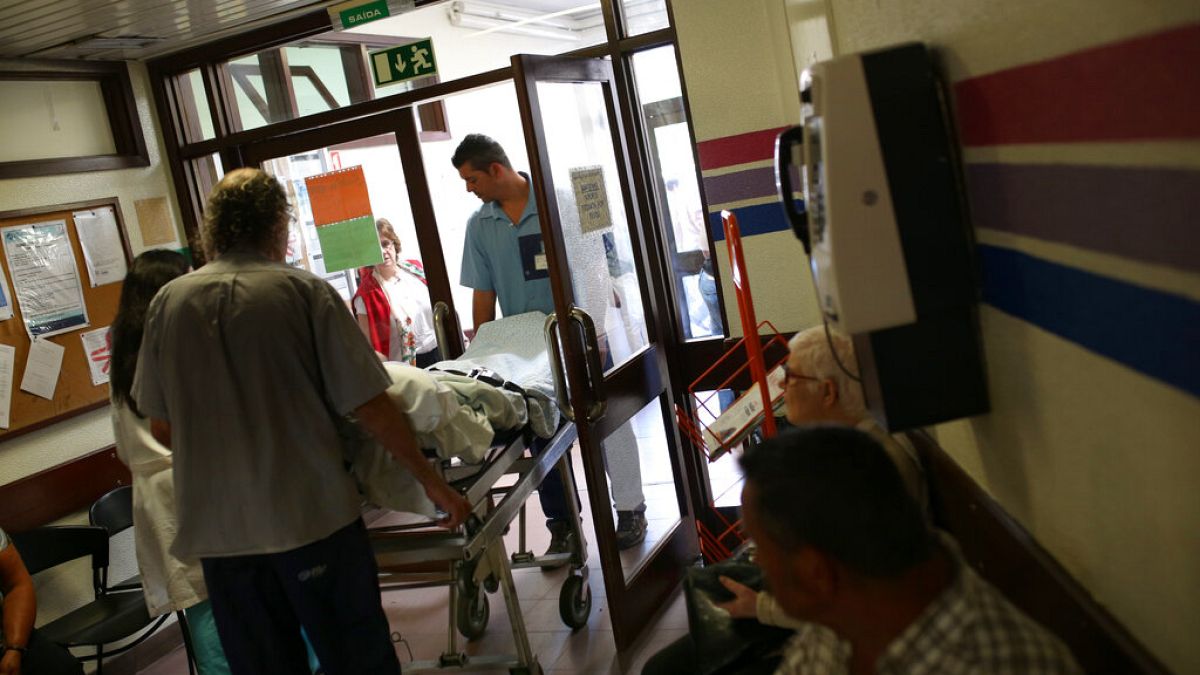Wyoming
Wyoming set to break ground on major park renovations

WYOMING, Ohio (WKRC) – The city of Wyoming is getting ready to break ground on some major park renovations.
A ceremony is scheduled for Monday night at 7 p.m. at the Village Green on Wyoming Avenue.
The plans include a new performance pavilion surrounded by gardens on the north side of the park. The great lawn will serve as an open space for people to enjoy the performances. There will also be tables with umbrellas for shade.
The project is expected to be completed by October.

Wyoming
Carbon Dioxide Can’t Be Labeled A “Pollutant” Under Proposed Wyoming Legislation
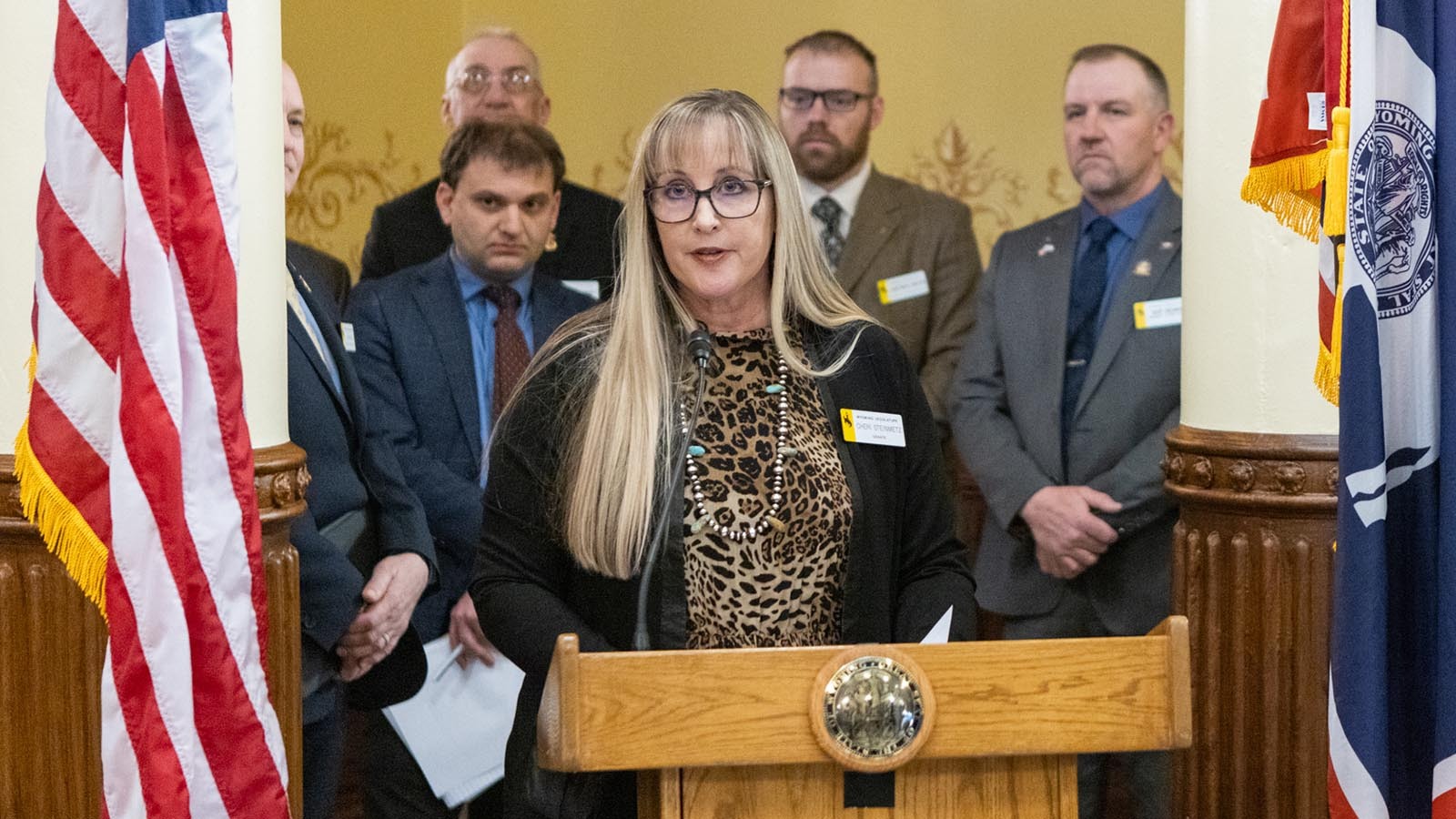
Legislation proposed by state Sen. Cheri Steinmetz, R-Lingle, may turn out to be more than a message about the political debate over climate change, it also could mark a substantial change in Wyoming’s environmental policy moving forward.
Her “Make Carbon Dioxide Great Again” bill shared exclusively with Cowboy State Daily would cut out low-carbon energy standards in Wyoming and repeal legislation passed by the Legislature in 2020 that requires coal power plant owners to retrofit their facilities with carbon capture, use and storage technologies as an alternative to help prevent them from having to shut down.
It also would specify that carbon dioxide is not a pollutant or contaminant and cannot be designated as such in Wyoming.
“It requires a clear-eyed look at how policies aimed at eliminating CO2 emissions, such as decarbonizing the West, making Wyoming carbon negative or popular ‘net-zero’ mandates,” Steinmetz writes in an op-ed. “They may sound good on paper but often come with high economic costs and questionable environmental benefits, and clearly negative effects on our people and our industries.
“Wyoming must refuse to jeopardize our economy and energy security for initiatives that will yield — at best — questionable results.”
Gov. Mark Gordon has been a major proponent of Wyoming becoming carbon negative, which he views as the best approach to saving the state’s fossil fuels industries. He declined to comment on Steinmetz’s legislation.
What It Does
The 2020 bill passed with a solid majority in both chambers and was signed into law by Gov. Mark Gordon. Last year, the Legislature passed new legislation easing some of the requirements on the 2020 mandate and bumped the deadline that operators need to comply with these standards from 2030 to 2033.
The 2020 legislation was brought as an attempt to insulate coal plants from changing market demands and help stem off the closure of these facilities because of a larger shift away from coal by bringing more carbon capture projects to Wyoming.
Sen. Brian Boner, R-Douglas, was a co-sponsor on the 2020 bill and doesn’t support Steinmetz’s new effort as he believes it has been effective in helping save Wyoming’s coal industry.
“I’d be hesitant to move away from strategies that are clearly working to preserve our baseload, coal-fired power plants that we’re going to need,” Boner said.
Rep. Mike Yin, D-Jackson, agrees, calling the new effort “another bill that does nothing to make everyday Wyomingites’ lives better, but just a continuation of the in-fighting within the majority party.”
Who It Effects
This law impacts five coal plants in Wyoming.
Boner believes the 2020 legislation has been “demonstrably effective” in protecting Wyoming’s coal industry and economy.
He pointed out how Rocky Mountain Power said in its biennial Integrated Resources Plan released last week that it will delay closure of Dave Johnston Power Plant Units 1 and 2 in Glenrock by one year to 2029, and will continue to evaluate carbon capture and sequestration options for Jim Bridger Units 3 and 4 in Rock Springs for completion by 2030. The closure of Units 1 and 2 had originally been proposed for 2027.
“In terms of saving jobs, for Converse County this is a success,” Boner said. “It demonstrates the current strategy is working. It’s a huge deal for Glenrock.”
The mandated retrofits are a costly measure for these facilities however, which the 2020 legislation also attempted to address at the time. Under the law, each utility company is allowed to initiate a cost recovery mechanism that allows them to charge up to 2% of each customer’s total electric bill to help shoulder the cost of the low‑carbon energy standard passed by the Legislature.
“The people of Wyoming have always believed in the value of questioning conventional wisdom, looking at the bigger picture and finding solutions that are possible and actually work,” Steinmetz wrote. “This legislation is not about denying science, it is about applying science, thoroughly reevaluating the ‘climate change’ scientific assumptions and advocating for policies grounded in practicality, reality, and achievability — common sense.”
Steinmetz’s bill would repeal these requirements and require utility companies to refund any rate taxes that customers paid to help install the carbon capture technology, but only for unspent money. How these refunds would be delivered would be up to the Public Service Commission.
Travis Deti, executive director of the Wyoming Mining Association, said his organization is neutral on Steinmetz’s bill and sees both pros and cons to mandating carbon sequestration efforts at coal plants.
“I certainly understand the concern, but there’s pretty good support for viable carbon capture at coal facilities,” he said. “Unless there’s a dramatic shift in the market, using carbon capture utilization for emissions is going to be needed to keep the coal fleet going.”
Outgoing Rep. Dan Zwonitzer, R-Cheyenne, said that when his bill passed in 2020, solar energy was much less prevalent than it is today, which served as an impetus to bridge a connection to carbon capture. He said the recent growth of solar, which he expects solar energy to be cheaper than coal in about five years, takes away some of the gusto from the bill’s original purpose, with the future of coal production worldwide in serious doubt when compared to the growth of that alternative energy.
“Here in the next decade, it (worldwide demand) could easily switch to solar, and Wyoming could be left in the dark,” Zwoniter said.
But he still opposes Steinmetz’s bill as he believes it is the wrong approach to try and keep coal alive in Wyoming and believes if passed, will kill the industry more quickly.
“The difficulty with passing the bill is Wyoming ultimately needs to focus on technology, research and development for our coal industry, to keep coal viable and sustainable,” Zwonitzer said. “The bill takes a step back from us trying to invest in coal as a long-term source of power for Wyoming.”
CO2 A Good Thing?
Steinmetz’s bill also would make a formal state policy statement against addressing carbon dioxide as a negative by declaring that carbon dioxide is not a pollutant.
This stance flies in the face of the widespread scientific conclusion that it is a pollutant despite the gas occurring naturally in the air.
Steinmetz said the bill would directly contradict Environmental Protection Agency mandates.
She also said it would have no impact on oil recovery efforts in Wyoming but would affect carbon capture injection wells and underground facilities.
She also argues in her bill that carbon dioxide serves a valuable role in agricultural production as “a foundational nutrient necessary for all life on Earth,” and that the carbon cycle “is a biological necessity for life on Earth.”
“Wyoming is uniquely positioned to lead this conversation,” Steinmetz writes in her op-ed. “Our state is vital to energy production, agriculture and food industries, transportation and energy reliability and stability. We understand the real-world importance of CO2.”
Her stance aligns with the views presented in a hearing denying the effects of climate change held at the Capitol during the Legislature last year. The scientists featured in this hearing either expressed disbelief that climate change is happening, or a belief that it could not only be inconsequential, but even beneficial.
Although rising temperatures could indeed help agricultural production in some parts of the world, it also could further exacerbate decades of drought already seen in the Colorado River Basin and other areas and further elevate sea levels, which will lead to more flooding and property damage on the coasts.
Leo Wolfson can be reached at leo@cowboystatedaily.com.
Wyoming
Meet (some of) the faces behind Banner Wyoming Medical Center

As a regional trauma and referral center, Banner Wyoming Medical Center is the largest hospital in Wyoming and provides comprehensive heart, stroke and trauma care and more to the people of Wyoming. The hospital’s team is made up of people with a genuine desire to take care of their friends, family and neighbors and to keep that care in the state.
These are just some of the faces behind Banner Wyoming Medical Center.
Meet Tom,
Tom Sherwin was a pipe welder for more than 15 years before deciding he needed a career change. After more than a dozen knee surgeries and a lot of time spent in hospitals over the years, his wife encouraged him to think about a career in health care.
At first, he thought he might be a paramedic but ultimately decided to pursue a respiratory therapy degree at Casper College. He’s now been a respiratory therapist for more than 11 years and began managing Banner Health’s Sleep Lab in Casper in 2019.
“It’s important to me to give every patient the best care,” he said. “I’ve been on the other side, and I know how much a kind word means.”
Tom grew up on a 30,000-acre ranch west of Casper and enjoys everything outdoors, including bow hunting, fishing, hiking, rock hounding, and prospecting. If he’s not outside, he enjoys spending time with his wife, four daughters and grandson.

Meet Sam,
All of the males in Sam Liday’s family are firefighters, so it seemed clear that
might be his career path as well. His mother is a pharmacist and he thought
about following in her footsteps, but she talked him out of it. Firefighting
didn’t feel like his life calling, so he decided to pursue nursing school.
“I knew I wanted to do something that would have an impact,” said Sam.
Originally from Idaho and educated in Montana, Sam is accustomed to life in
the West and moved to Casper almost two years ago with his girlfriend who is
from here. She is a firefighter. Sam is a nurse on Banner’s Wyoming Medical
Center’s Neuro Unit.
When Sam isn’t at work, he enjoys everything outdoors, including hunting,
skiing and especially fly fishing along the North Platte River.

Meet Kindal,
A dog-adoring, sun-worshipping, golf-loving LPN.
Kindal Kott moved to Wyoming from a small town in Texas when she was 13. After high school, she wasn’t quite sure what she wanted to do for a career, but knew she wanted to stay in Casper.
“I really like Wyoming,” she said.
Kindal decided to get her CNA license and has worked on Banner Wyoming
Medical Center’s Medical Unit for about three years. She was inspired by
her co-workers and one of her cousins who is a NICU nurse to pursue
nursing school and has been holding down her job as an LPN while
attending nursing school at Casper College.
“I just felt like it was the right thing to do,” she said.
In Kindal’s limited free time, she enjoys walking her two blue heelers
and playing golf.

Meet Jonica,
A dog-loving, walleye-fishing, amateur-bowling paramedic.
A scary experience as a teenager is what led Jonica Fields to health care.
A tumor was discovered in her sinus cavity when she was just 14, which forced
the Worland-native to spend a lot of time at Children’s Hospital in Denver.
Fortunately, the tumor was benign and able to be removed, and she’s been
able to lead a normal life.
Jonica decided to pursue her paramedic degree but after graduating about
10 years ago, there were no job openings in the ambulance department. She
pivoted and decided to take a job in Banner Wyoming Medical Center’s lab as
a phlebotomist and waited about 6 months for a paramedic job to open.
Today, she’s in nursing school.
“I really love the ambulance, but I don’t feel like this is the kind of job I can do
until I’m 65,” she said.
In her free time, Jonica loves just about anything outside, especially if there
is no cell service.

Meet Hong,
A humidity-loving, family-adoring, joyful-cooking laundry aide.
Hong Hatterman moved to Wyoming from Vietnam after she met and
married her Wyoming-born husband. His mother, Hong’s mother-in-law, is
also Vietnamese, which helped ease the big transition.
“The hardest thing was the weather,” she said. Even after 26 years, she says
she still misses the humidity in Vietnam.
She doesn’t have the opportunity to return to Vietnam very often, but the
family gets together to cook traditional food that feels like home, and she’s
able to instill some of her cultural traditions in her two children.
Hong came to work at the hospital and worked in housekeeping for two
years before transitioning to laundry, where she has spent more than 17
years. She said she has thought about going back to school to become a
nurse, but she loves people and the teamwork in the laundry department.
“When you’re happy with what you’re doing, time flies,” she said.
For more information on the faces behind Banner Wyoming Medical Center, and all of the services they provide, visit the Banner Wyoming Medical Center website or follow them on Facebook.
PAID FOR BY BANNER WYOMING MEDICAL CENTER
This article is a promoted post. The views, thoughts, and opinions expressed in the text belong solely to the organization that paid for the article, and do not necessarily reflect the views, thoughts or opinions of Oil City News, its employees or its publisher. Please fill out this form if you would like to speak to our sales department about advertising opportunities on Oil City News.
Related
Wyoming
Wyoming Sells 640 Acres of Land to Feds for $100M
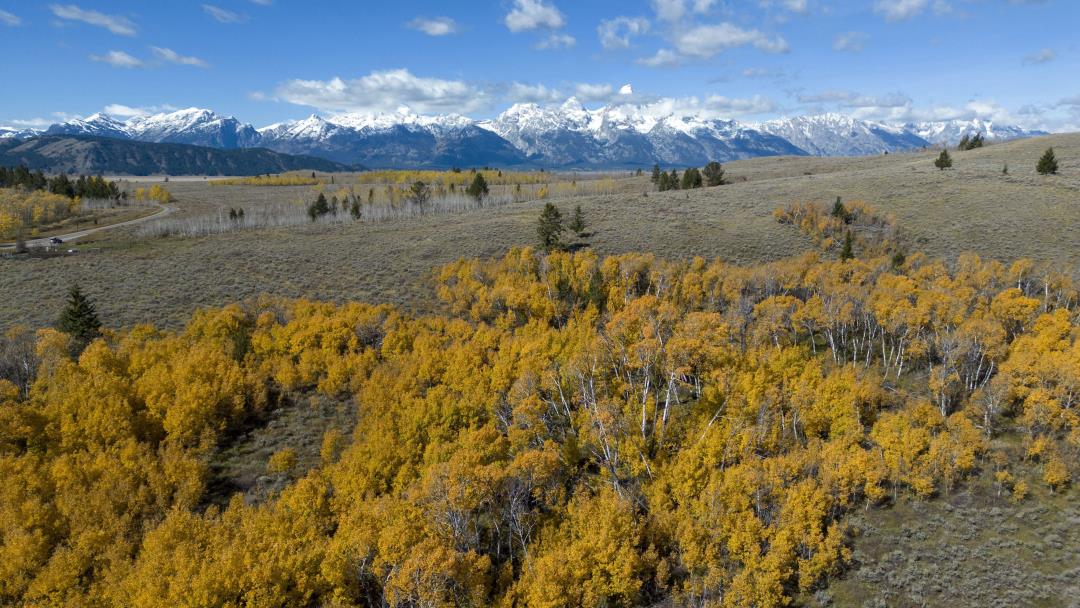
Wyoming has sold 640 acres of land to the federal government for $100 million after what the WyoFile calls “decades of political maneuvering.” The Kelly Parcel has been owned by Wyoming since the state was established, but USA Today reports it became part of Grand Teton National Park in 1950. (Other outlets, however, including Cowboy State Daily, report that the parcel abuts the national park and that the sale adds the land to the park.) The sale follows years of discussions over what to do with the parcel, with the state’s Board of Land Commissioners having previously considered putting it up for public auction, which would have meant private developers could have bought it. The sale to the federal government will prohibit private development on the land. (More Grand Teton National Park stories.)
-

 Health1 week ago
Health1 week agoNew Year life lessons from country star: 'Never forget where you came from'
-
/cdn.vox-cdn.com/uploads/chorus_asset/file/24982514/Quest_3_dock.jpg)
/cdn.vox-cdn.com/uploads/chorus_asset/file/24982514/Quest_3_dock.jpg) Technology1 week ago
Technology1 week agoMeta’s ‘software update issue’ has been breaking Quest headsets for weeks
-

 Business6 days ago
Business6 days agoThese are the top 7 issues facing the struggling restaurant industry in 2025
-

 Culture6 days ago
Culture6 days agoThe 25 worst losses in college football history, including Baylor’s 2024 entry at Colorado
-

 Sports6 days ago
Sports6 days agoThe top out-of-contract players available as free transfers: Kimmich, De Bruyne, Van Dijk…
-

 Politics4 days ago
Politics4 days agoNew Orleans attacker had 'remote detonator' for explosives in French Quarter, Biden says
-

 Politics4 days ago
Politics4 days agoCarter's judicial picks reshaped the federal bench across the country
-

 Politics2 days ago
Politics2 days agoWho Are the Recipients of the Presidential Medal of Freedom?

